Northeastern co-ops team up with Boston Public Schools to help marginalized students thrive
Josiehanna Colon grew up in Boston and went through the schools, while Christly Bright-Agindotan spent part of her childhood in Montana. In these two different places, they found a passion for helping students.
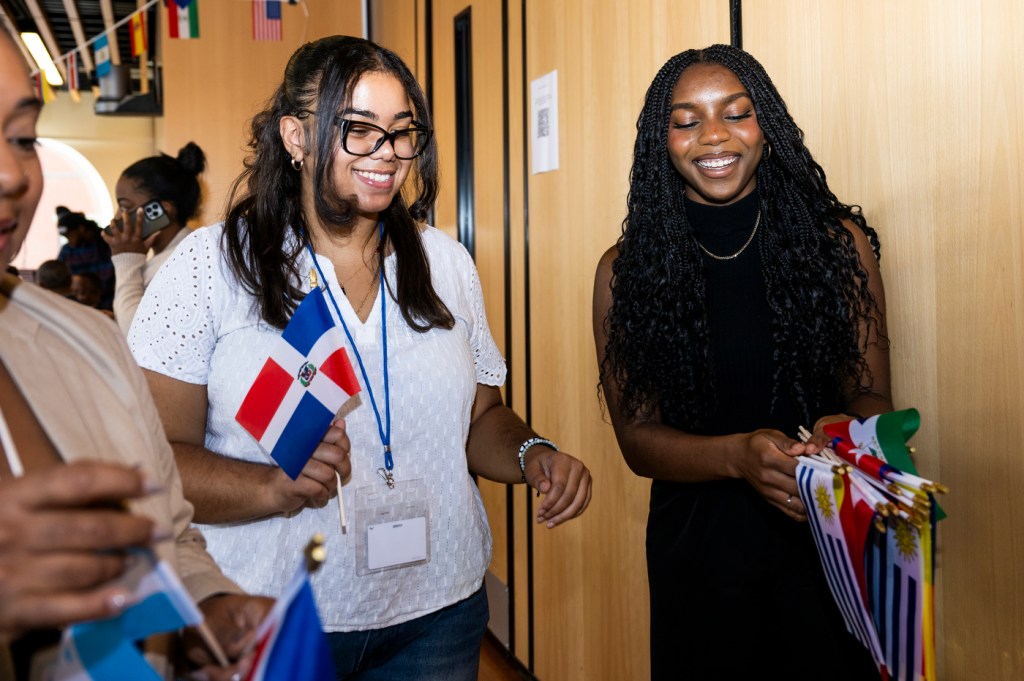
There’s a lot of things that contribute to a student’s success beyond what happens in the classroom. The policies and practices at schools can help make or break academic experiences.
The Boston Public Schools’ Office of Opportunity Gaps is looking to change this by identifying the systemic hurdles facing students in individual schools and across the district and addressing them through programs and policy.
Its mission is to close the proficiency gap for marginalized students, specifically Black and Latinx students, economically disadvantaged students, English Language Learners, and students with disabilities.
Joining in on this work are two Northeastern University students: Christly Bright-Agindotan and Josiehanna Colon. Both are working at the Office of Opportunity Gaps as co-ops, looking to make a difference in the lives of local students.
Both students arrived at the office for similar reasons — they want to help marginalized students thrive. But each had very different paths to getting here.
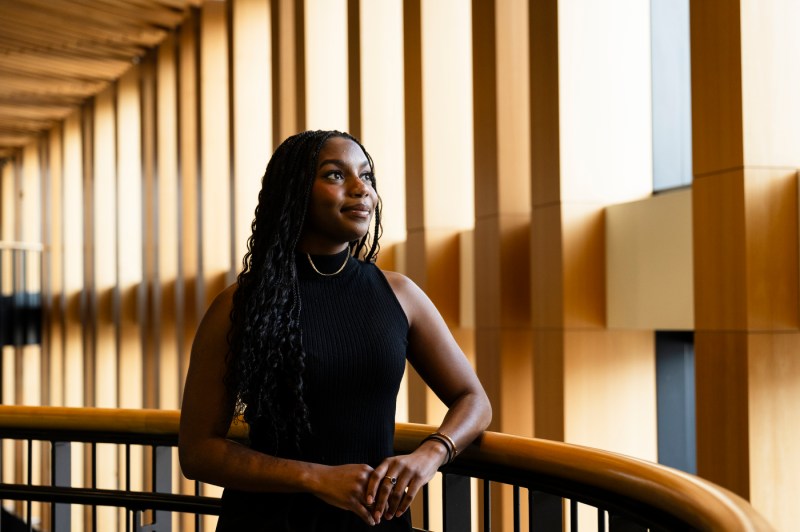
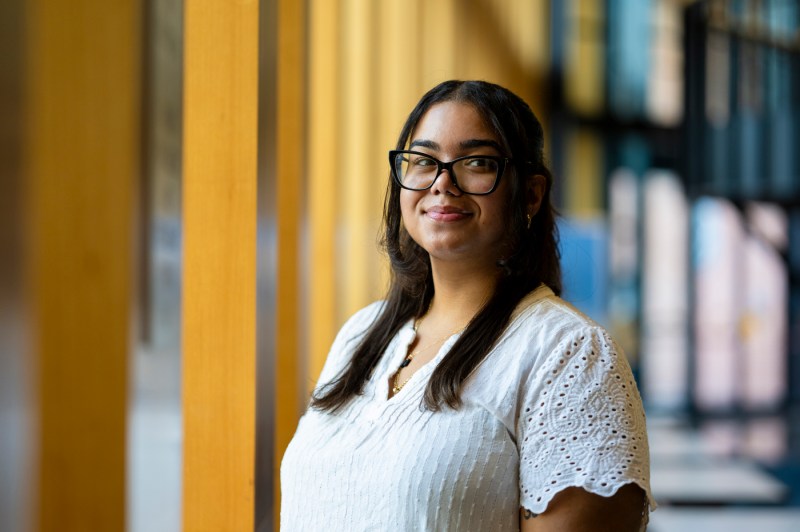
Bright-Agindotan, a fourth-year business administration major, moved around a lot growing up. When she was in sixth grade, Bright-Agindotan moved from central Illinois to Montana, where there weren’t many other Black students.
“I was confronted with my position in society and what I look like to other people in a way that I hadn’t before,” she said. “I was forced to become a spokesperson for my entire race. … I’m a Nigerian American — my parents immigrated to this country 22 years ago at this point — so I didn’t have the lived experience that people thought I did, but to them being Black was just one in the same.
“I was able to explore the nuance of the Black identity, and being forced in this position actually made me grow a genuine interest in (social justice),” she said. “I didn’t want other people to have to deal with that. I just find myself in spaces trying to make it easier for other people to access education.”
Meanwhile, across the country in Dorchester, Josiehanna Colon was going through Boston Public Schools as a student from elementary through high school. She was involved in student government and represented her high school on the Boston Student Advisory Council, advising the superintendent on the student perspective on BPS policies.
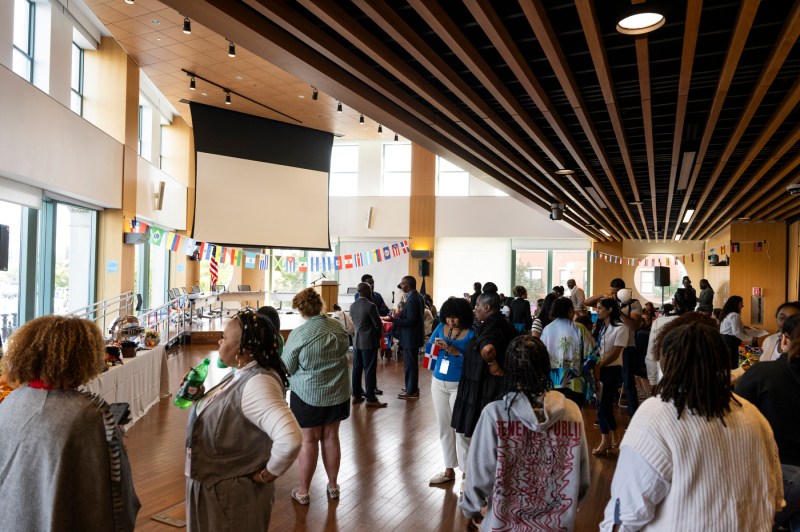
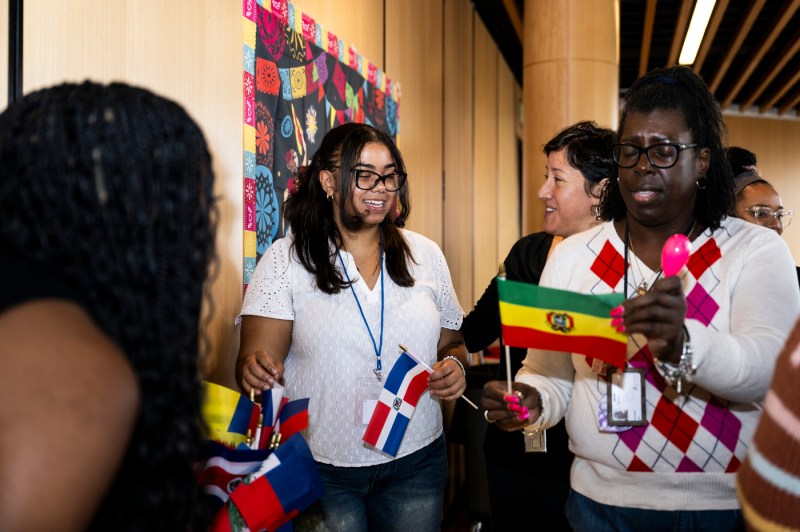

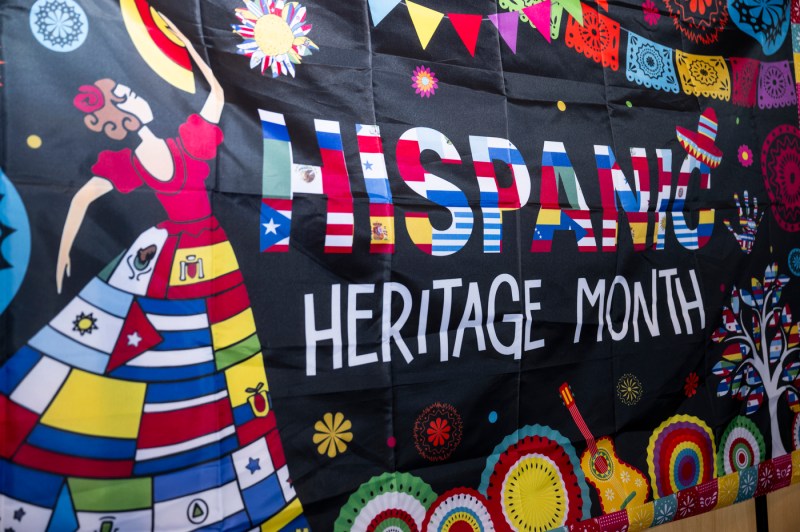
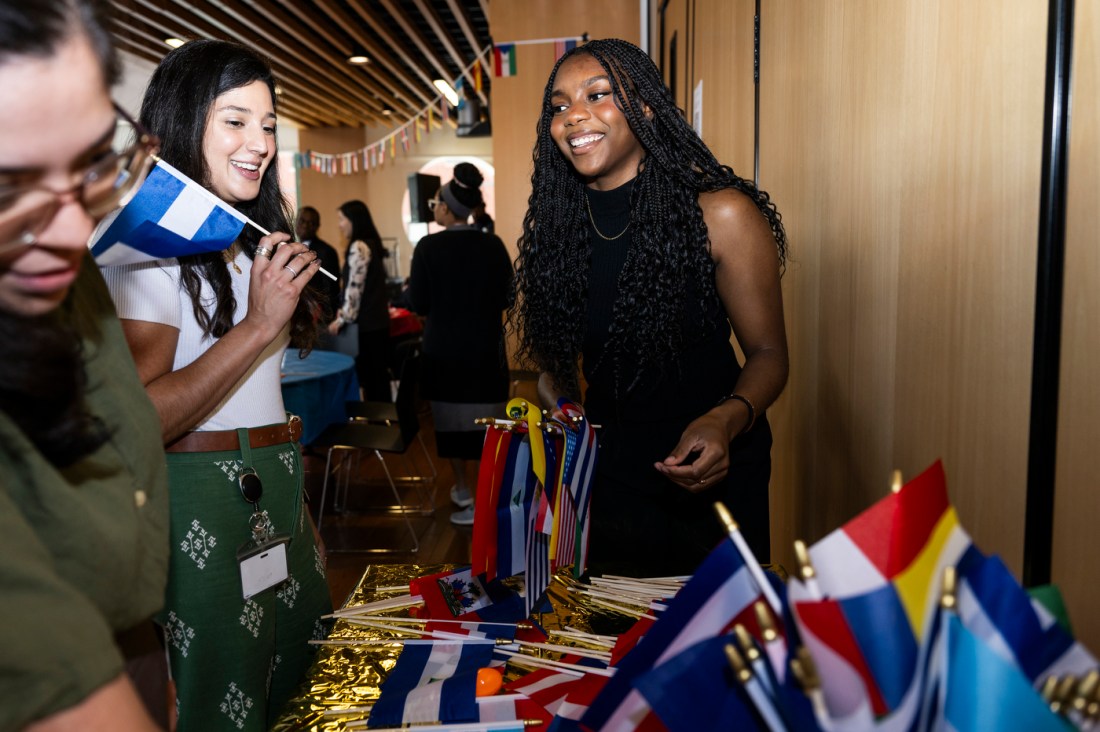
Even now, when not taking classes as a second-year criminal justice and human services major, Colon works with BPS high school students in debate and has worked as a substitute teacher in the district.
“With my previous work in BPS, just as a student representative, I definitely knew that I wanted to explore that in a more professional lens,” Colon said. “I knew that I wanted to get into education policy work, and because I knew that was where I wanted to head, my first co-op search was (focused on) BPS.”
Colon and Bright-Agindotan do a lot of work looking at both the day-to-day needs of students in Boston schools and the overall needs of the district. The Office of Opportunity Gap is looking to improve the district by creating new policies, culturally and linguistically sustaining practices, and targeted programs for marginalized students.
The two do a lot of student support in their co-op, working closely together and with Boston schools to determine what issues are facing students. The office also works on policies and programs that can help close the opportunity gap.
Featured Posts
“We know that issues and gaps aren’t solved with policy alone,” Colon said. “Gaps don’t close with just programming. There’s the systemic operation that goes into it, so we’ve been able to explore where policy and then the on-the-ground comes in and see how programming and policy go hand in hand.”
The day-to-day work varies, but Colon and Bright-Agindotan often go into Boston’s schools and speak with staff to determine their needs, as well as help with different programs for students. They recently helped plan a climate career fair for Boston high school students and are planning a professional development series for executive leadership to help create a deeper sense of understanding around the different cultures and ethnicities in BPS. They’re also working on helping marginalized students receive test prep for Boston’s exam schools.
One issue facing learners across the district is chronic absenteeism, so Bright-Agindotan said the district, along with community volunteers, have done door-knocking campaigns in which they visit the home of a chronically absent student to see what’s going on and if they need additional support to make it to class. They gave families in need gift cards to local grocery or clothing stores to help them get the supplies needed for school.
“We’re able to offer them resources affirming the importance of being present in school, the contact information of people that they can contact directly so they know that they’re going to be supported and we had people follow up and deliver (more supplies),” she added. “People don’t understand that sometimes students don’t have supplies to go to school, they don’t have clothing.
“There’s so many different factors that contribute to why somebody is or isn’t present at school. … At its core, it is really just like listening to people and seeing what problems exist for them, specifically within marginalized communities and people who have historically been disadvantaged.”
For Colon, coming into this work as a graduate of BPS offers her a different perspective on the work.
“I’ve definitely been pushing for more youth presence,” she said. “It’s time we start utilizing the students that we’re working for.”
Meanwhile, Bright-Agindotan said the co-op has opened her eyes to what it’s like to work in the public sector.
“I like being exposed to so many different aspects of working in the public sector,” Bright-Agindotan said. “I love being able to go to schools in person and talk to the school leaders about what issues their schools are facing. Door knocking was amazing because I felt like I was truly a part of solutions and showing students and families that people care about their presence, and are willing to do things to let them know they are welcome and wanted in school, especially when I personally haven’t always felt like that. So being able to be that for somebody else is honestly amazing.”










